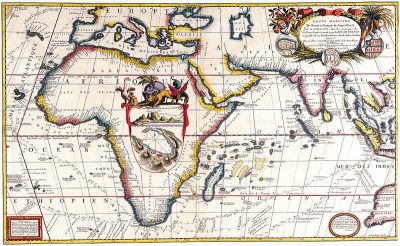The spice route, the first fruits of globalization
PDFThe globalisation of the contents of our plates began in antiquity with the trade in spices.
The use of spices such as cinnamon or cumin is found in Mesopotamia and ancient Egypt.
At the beginning of our era, the clove is present at the court of the Chinese emperors, reserved for medicinal use. It is also consumed in the Roman Empire. In the 14th century, Chinese, Arabs and Javanese shared in this lucrative trade – prompting Europeans to open new sea routes to dispense with the middlemen.
It is the multiplication of trade with Magna Graecia, and the conquests of the Roman Empire that introduced spices to Europe.
With the disappearance of the Western Empire, they became the monopoly of Damascus and Constantinople. This monopoly ended when the economic heyday of the Italian city-states, which during the Crusades established maritime relations with the Middle East, came to an end.
Genoa, Pisa, and Venice, the Serenissima, then redistributed the spices of the East to the entire Christian West at a golden price. Thanks to these rare and precious commodities, fortunes were made and empires were created.

The race for spices from antiquity to the end of the 18th century shaped a new economy, the premise of modern capitalism. For centuries, it ranked the power of states according to whether or not they controlled their trade, while, at the same time, it can only be noted that the populations of spice-producing countries have generally been the victims of the will to power and the greed of European countries.
Today, re-establishing a balanced balance of power between producers and buyers of spices is becoming an ecological and societal objective because the least developed countries, such as Madagascar, do not yet derive enough profit from what is one of their greatest export assets.




